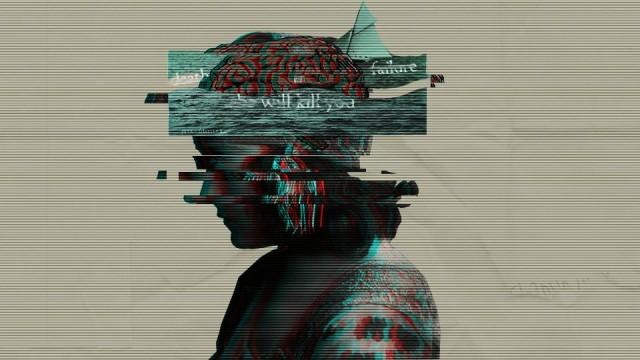What's it like to go through a psychotic break
Today is World Mental Health Day. Here we share the story of Clara Cervantes, a 22-year old psychology student, who first experienced auditory hallucinations at age 11. She currently still battles with anxiety.

I experienced my first psychotic break — the first time I hallucinated — when I was eleven years old.
It was said to be a result of genetics, deep depression and anxiety.
Somewhere along the way, the paranoia and the auditory hallucinations crept in, deluding me into believing the most ridiculous of things. It led me to mistrust my family.
I kept hearing about my own murder plot; I honestly believed everyone was out to get me.
Having major depression and anxiety felt as if the world was in a perpetual state of gray. There was no longer any meaning in life. I was hollowed out. Empty. Getting out of the house was more of an achievement than anything. And on the rare moments I did, all I wanted to do was hide away.
The voices soon followed; voices of strangers and people I knew speaking seemingly right behind me. Sometimes the voices seemed to float from outside my window.
In the beginning, the paranoia preyed on my insecurity, shame, and guilt -- the voices would remark on how terrible I was, how everything was my fault somehow.
Weeks later, it took a turn for the worse. I kept hearing death threats and plans for my impending murder. I heard the familiar voices of my own relatives, my mother’s co-workers and strangers in the street all plotting to end my life.
I became a near recluse.
Every time my mother tried to drag me out the house, I cried and refused, terrified of what could possibly happen if I stepped outside. But my mother insisted that she needed help to fix me. She told me I was sick and that the voices weren’t real.
I never knew how much I wanted to be told that. Many had assumed that my strange behavior was just one of my quirks, and I believed them. I was so grateful of being told that this sadness wasn’t meant to last a lifetime.
Still, it was hard to fully realize that the hallucinations were the result of my illness. It was my reality. No matter how the hate from strangers and loved ones confused or hurt me, I believed it.
I could not remember the exact moment I got better. I was only a confused kid back then, living in a small town where no one understood, least of all me.
There was an unfortunate incident in a church that led to my family thinking I was being possessed, which in turn led to an perplexing attempt at exorcism that happened twice and in different places; one in church and one in my own home.
_2018_10_18_17_34_44.jpg)
There were multiple visits to the psychiatrist. I was advised to quit my schooling until I got better. The pills were endless, as were the days.
No, I do not remember when I got better, or how. It hurts thinking about it, still. I pushed away any bit of kindness from all those who cared for me. I very effectively self-destructed.
I guess at some point, I just wanted the pain to stop. I wanted peace.
Healing was a long process. The pills made me feel numb, sleep was my escape. My mother’s support got me through the whole thing. It took me a while to get the voices out of my head — they had been around for so long it took me a long time to draw the line between what was real and what was a figment of my mind.
By the time I was deemed well enough to return to school, I had a hard time connecting with new people and establishing relationships. It took me years to learn how to warm up to the strangers around me, and even then, I was still considered the quiet kid in class.
This isn’t a story of complete recovery. It’s been eleven years since then. The voices have ceased, but the trust issues and anxiety remained. Living with anxiety is overwhelming; the panic is sometimes too much for me to handle.
Just recently, I broke down crying while my classmates and I were uneventfully walking to class. There were times when my paranoia would encourage me to grow suspicious of my own schoolmates.
Negative thoughts still constantly plague my mind. I remain uncomfortable in front of large crowds, and I have a tendency to shy away from people, irrationally fearful. And in those moments, I have no choice but to seek medical help.
I’m still taking medication. But I’ve grown to become more aware of my own issues and I’m dealing with them. My family and friends continue to support me, and their help is invaluable.
The road to recovery is always going to be a rocky one. But now I know recovery is possible. I’ve been on this road eleven years now, and on I still go. You may suffer through what could be the hardest thing to experience in your life. But no matter how dark it seems, believe me when I say that help will always be available to those who need it. — LA, GMA News



